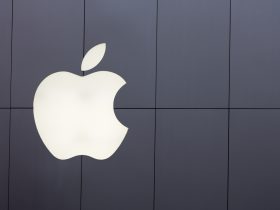This development marks a significant escalation in the ongoing high-stakes conflict between the two companies
European Union regulators have expressed their intention to question Apple regarding allegations that it impeded video game company Epic Games from establishing its own app store, potentially violating the digital regulations that were implemented in the 27-nation bloc on Thursday.
This development marks a significant escalation in the ongoing high-stakes conflict between the two companies. Epic Games, the creator of the immensely popular game Fortnite, has been engaged in a lengthy battle against Apple’s exclusive control over the distribution of iPhone apps.
On Wednesday, Epic Games claimed that Apple obstructed its efforts to create its own iOS app marketplace as a direct competitor to Apple’s App Store, deeming it a violation of the European Union’s new Digital Markets Act.
These comprehensive regulations, designed to prevent major tech companies from monopolizing digital markets, have compelled Apple to permit individuals in Europe to download iPhone apps from stores that are not operated by the American tech giant—a move that Apple has long resisted.
The European Commission, the top antitrust watchdog in the EU, stated in a release on Thursday that it has “requested further explanations on this from Apple under the DMA.” Violations of these regulations could result in penalties amounting to billions of euros.
This week, the EU has already imposed a €2 billion antitrust fine on Apple for impeding competition in the music streaming sector.
The commission also mentioned that it is currently assessing whether Apple’s actions cast doubt on its compliance with other EU regulations, including the Digital Services Act. This second set of regulations in the EU’s digital rulebook prohibits tech companies from applying their terms and conditions in an arbitrary manner.
Epic Games argued that Apple brazenly violated the Digital Markets Act by rejecting an alternative iPhone app store that the company had planned to establish in Sweden to cater to European Union users.
Furthermore, Epic Games accused Apple of retaliating against CEO Tim Sweeney, who had publicly criticized the iPhone App Store and spearheaded an antitrust case against it in the United States.
Apple justified its decision to remove Epic from its App Store by citing the company’s history of unlawful actions and legal battles, which ultimately led to a court ruling in the United States in 2021.
Apple’s move to remove Epic from its App Store stemmed from the latter’s attempt to circumvent Apple’s security and privacy measures for iPhone users. Additionally, Apple aimed to recover a portion of the investment that fuels its globally recognized and widely used device.









